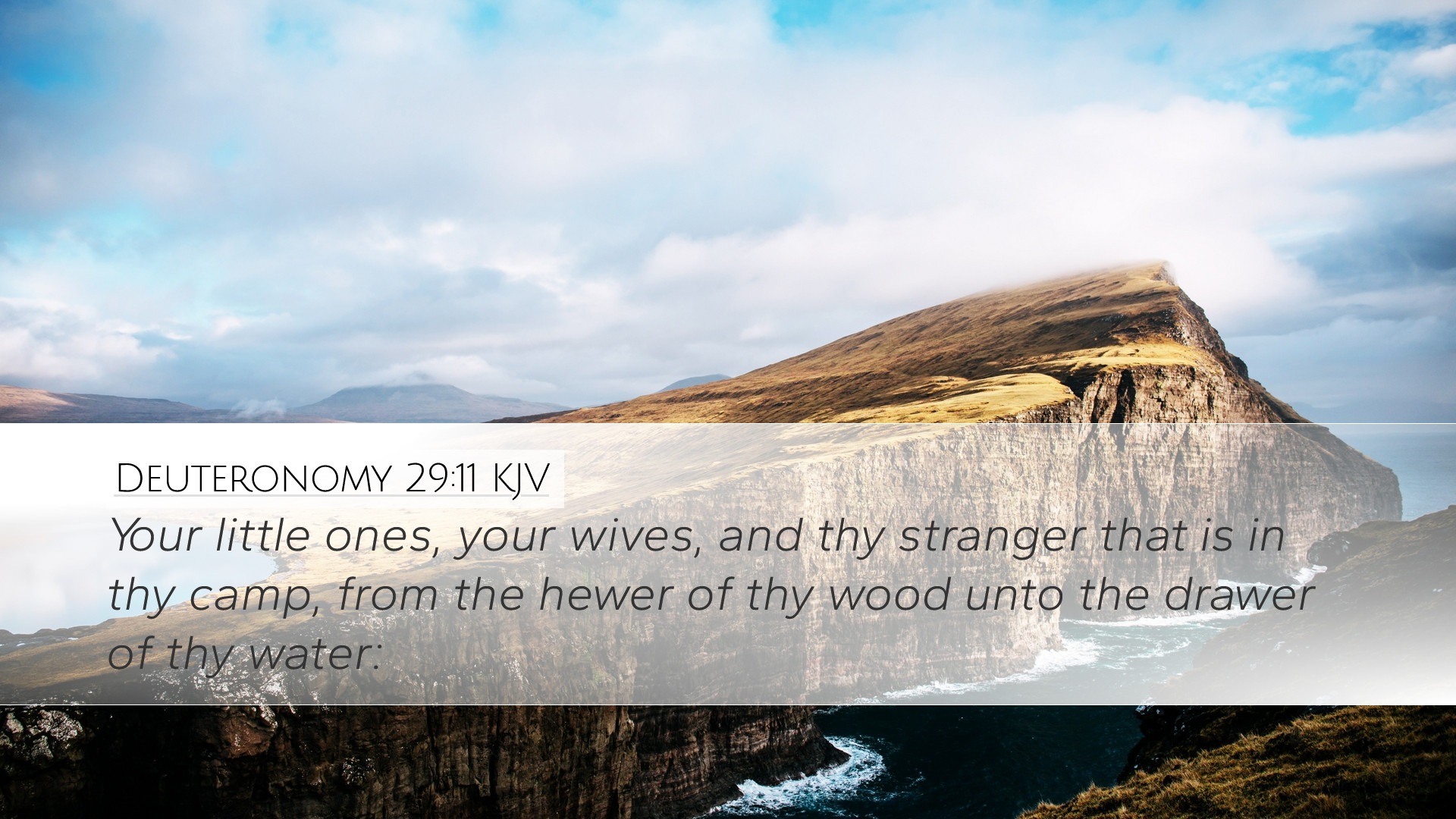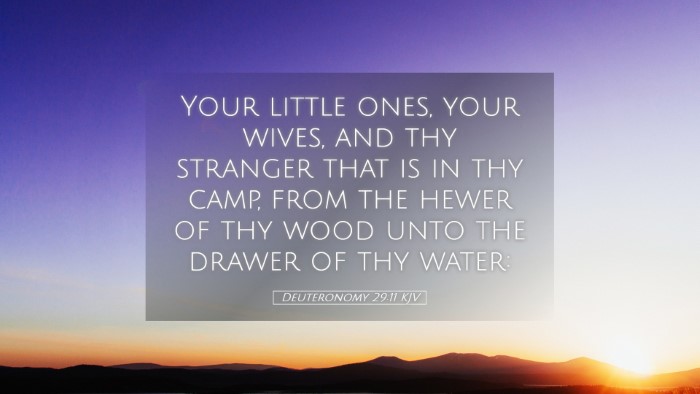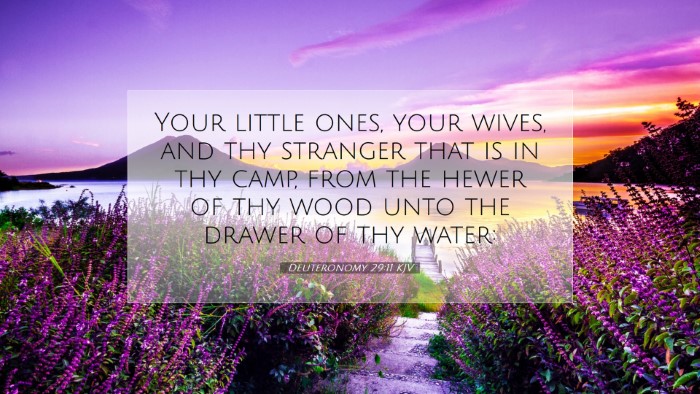Commentary on Deuteronomy 29:11
Deuteronomy 29:11: "Your little ones, your wives, and the stranger that is in your camp, from the hewer of your wood unto the drawer of your water."
Introduction
This verse is part of Moses' address to the Israelites as they stand on the brink of entering the Promised Land. It highlights the inclusivity of God's covenant and His intention for every member of the community, regardless of age, gender, or status. In this commentary, we will explore the implications of Deuteronomy 29:11 as articulated by public domain theologians.
Matthew Henry’s Commentary
Matthew Henry emphasizes the significance of God's covenant being extended to all levels of society. He notes that "little ones" and "wives" denote the vulnerable and the dependent members of the community, whom God cherishes and prioritizes.
Henry points out that this provision serves as a reminder that God’s promises are not limited to the strong or powerful: "The stranger that is in your camp" indicates that even those who may not belong to the Israelite community are included in the blessings of God. This emphasizes the universal scope of God’s grace:
- Grace for All: God’s love is expansive, encompassing even those who may feel like outsiders.
- Covenantal Obligations: Every Israelite, regardless of their role, shares in the responsibility of upholding God’s commandments.
Albert Barnes’ Insights
Albert Barnes provides a detailed analysis of the practical implications of this verse. He explains that the categorization of people—from "the hewer of your wood" to "the drawer of your water"—reflects a comprehensive societal structure. In this regard, the inclusion of laborers in God's covenant is noteworthy:
- Inclusivity in Community: The verse underlines that every individual, regardless of their social standing or utility, has a part in the covenant.
- Role of Service: The individuals performing humble services are equally important in God's eyes—a humbling reminder to the Israelites that no work is too lowly in God’s kingdom.
Barnes articulates that the "little ones" signify the next generation, highlighting the importance of teaching these eternal truths to children and instilling faith in young hearts.
Adam Clarke’s Analysis
Adam Clarke emphasizes the historical context of this declaration. He notes that Moses was addressing a diverse group—those recently freed from bondage and now poised to inherit the land promised to their ancestors. Clarke elaborates on the implications of this verse in light of Israel's covenant with God:
- Divine Citizenship: God’s covenant indicates that citizenship in His kingdom is not a matter of privilege but rather an act of divine grace.
- Teaching Future Generations: The mention of "little ones" serves as a powerful reminder to the Israelites of their duty to teach their children about the Lord's ways.
Clarke further reinforces the idea that the blessings received through God’s covenant will not only impact the current generation but will echo through generations to come, marking an enduring legacy of obedience and faith.
Theological Implications
The theological implications of Deuteronomy 29:11 are profound and multi-faceted. It serves as a reminder of God’s inclusive love and the call to every believer to actively engage in the covenant:
- Community Responsibility: Understanding that the well-being of the community relies on every member’s faithfulness to God extends the responsibility of each believer to embrace and uplift the marginalized.
- The Value of the Vulnerable: The focus on "little ones" and "wives" suggests that God has a particular concern for the weak, urging the community to protect and nurture those who are most vulnerable.
- God’s Universal Call: The inclusion of the stranger signifies God’s heart for all humanity, revealing that every person has access to His promises.
Conclusion
Deuteronomy 29:11 encapsulates the inclusivity of God’s covenant and calls the Israelites—and by extension, all believers—to recognize their collective responsibility. The insights provided by Matthew Henry, Albert Barnes, and Adam Clarke reveal the depth of God's love for all people and His desire for a faithful community where every member is valued and responsible. As pastors, students, theologians, and scholars study this verse, they are reminded of the transformative nature of covenantal relationships and the call to live out these truths in a world that needs to see God’s love in action.


